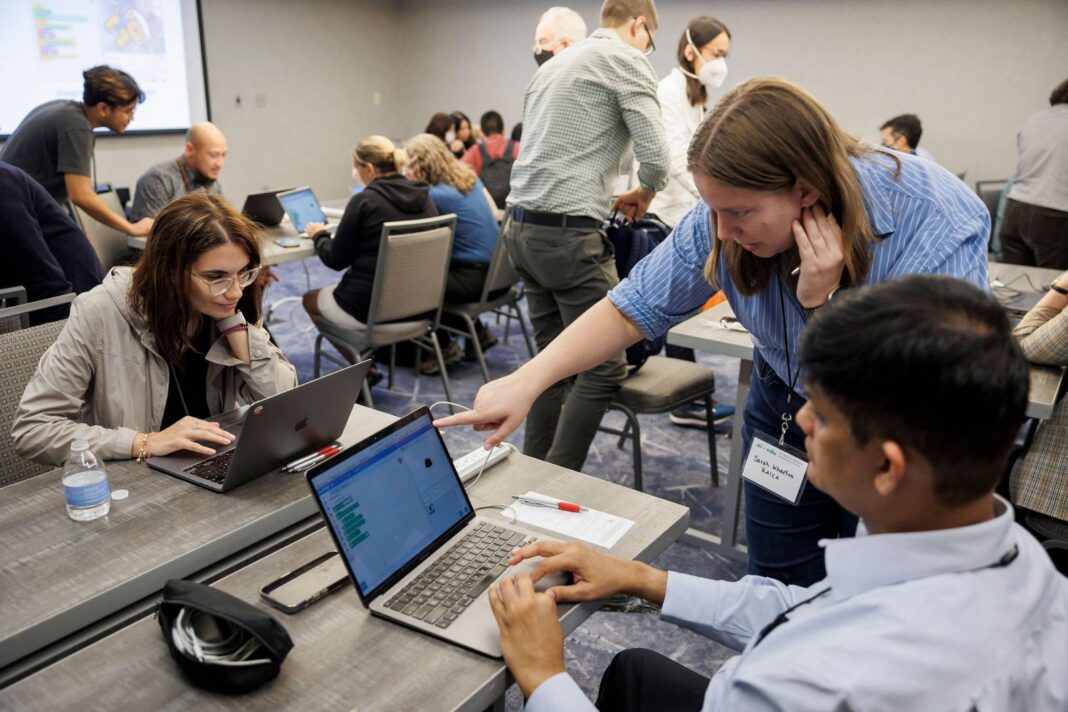In Short:
This summer, 350 people gathered at MIT’s AI + Education Summit to explore how education can adapt to include AI fluency. Key speakers discussed empowering teachers and students to responsibly use AI tools. Highlights included a hackathon for climate solutions and talks on integrating AI in schools. The summit emphasized equal opportunities for all students to learn about AI’s potential and ethical challenges.
This summer, 350 participants gathered at MIT to tackle a critical question: How can education continue to create opportunities for all students in a world where digital literacy is no longer sufficient, and fluency in artificial intelligence (AI) has become essential?
The AI + Education Summit, hosted by the MIT RAISE Initiative (Responsible AI for Social Empowerment and Education), took place in Cambridge, Massachusetts. The event featured speakers from various organizations, including the App Inventor Foundation, the Mayor’s Office of the City of Boston, and the Hong Kong Jockey Club Charities Trust. A highlight of the summit was the onsite “Hack the Climate” hackathon, where teams of novice and experienced MIT App Inventor users worked within a single day to create applications aimed at combating climate change.
Key Insights from the Summit
During the opening remarks, principal investigators Eric Klopfer, Hal Abelson, and Cynthia Breazeal articulated the emerging objectives for AI fluency. Klopfer stated, “Education is not just about learning facts; it’s a developmental process. We need to think about how to support teachers in being more effective. Teachers must be part of the AI conversation.” Abelson emphasized the immediate impact of computational action, noting the active role children can play in this evolving landscape. Breazeal, the director of the RAISE Initiative, highlighted the importance of AI-supported learning technologies as tools that complement, rather than replace, human interaction in educational settings. As she noted, “We want to empower all kinds of people around the world to use AI to solve critical problems in their communities.”
MIT AI + Education Summit 2024: Welcome Remarks by MIT RAISE Leaders, Abelson, Breazeal, and Klopfer
Video: MIT Open Learning
Global AI Hackathon Highlights
The summit also recognized the participants in the Global AI Hackathon, awarding prizes for applications developed in two categories: climate and sustainability, as well as health and wellness. Winning projects included innovations such as sign-language-to-audio translation, moving object detection for individuals with visual impairments, empathy training through interactions with AI characters, and personal health assessments using tongue imaging. Participants also engaged in hands-on demonstrations of MIT App Inventor, explored the Personal Robots Group’s social robots, and attended professional development sessions focused on responsible AI.
Networking Ideas for AI Education
The diverse array of attendees facilitated a rich exchange of ideas, leading to discussions documented in conference papers that covered relevant AI practices in educational environments. Topics included the implementation of AI in extracurricular programs, data security considerations, and large-scale experiments conducted in the United Arab Emirates and India. Plenary speakers addressed the importance of funding AI initiatives in education, the role of state governments in promoting its adoption, and challenges associated with generative AI, as highlighted in the keynote speech by Francesca Lazzeri, Microsoft’s principal director of AI and machine learning engineering.
Collaborative AI Education Initiatives
A significant contributor to early AI education efforts has been the Hong Kong Jockey Club Charities Trust. For years, the trust has collaborated with MIT to establish computational action programs before AI became a widespread educational challenge. A summit panel discussed the evolution of the CoolThink project, which successfully integrated computational learning into grades 4-6 across 32 schools in Hong Kong and later expanded to over 200 schools. CoolThink director Daniel Lai emphasized the importance of integrating these skills into the existing educational framework to ensure equal access for all students.
Addressing the Ethical Dimensions of AI
The closing keynote was delivered by Daniel Huttenlocher, dean of the MIT Schwarzman College of Computing, who described the contemporary state of AI as a “funhouse mirror” that distorts reality. He underscored the ethical responsibilities that accompany technological advancements, urging stakeholders to harness AI in ways that amplify human intelligence while addressing inherent risks. Huttenlocher expressed optimism about AI’s potential to uncover solutions beyond human capabilities, reinforcing the need for collaboration between AI and education to ensure meaningful advancements in this vital field.





